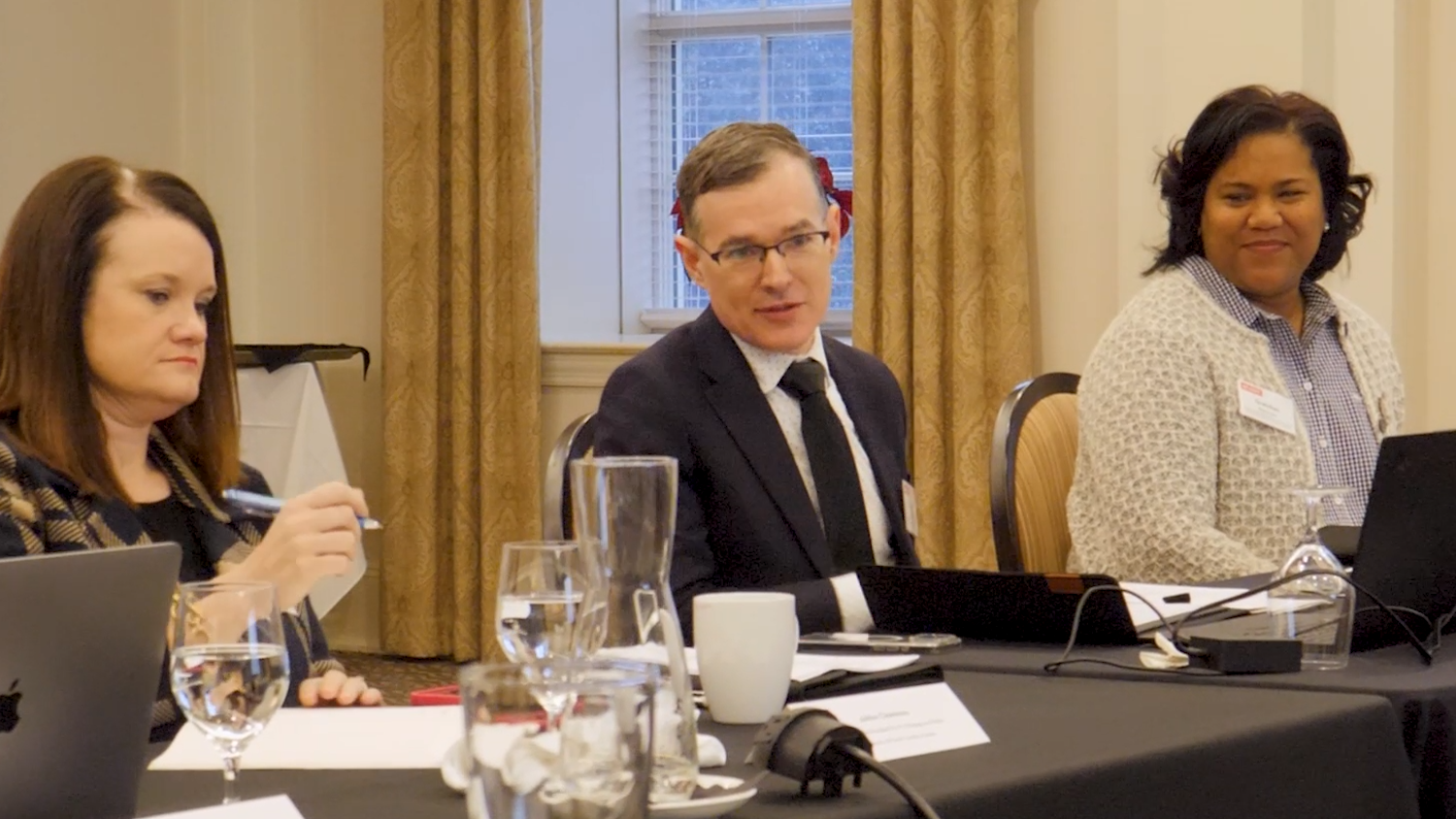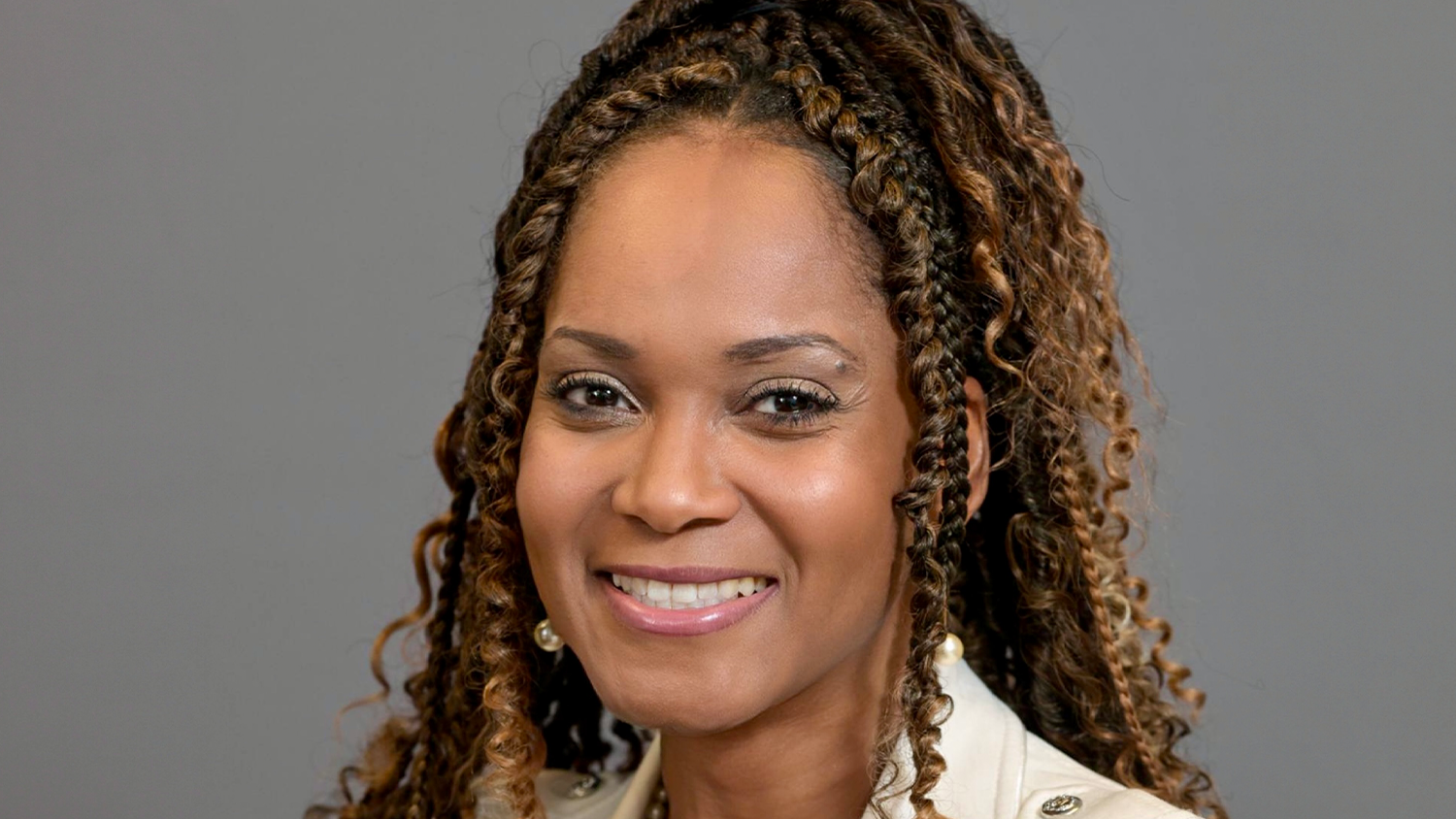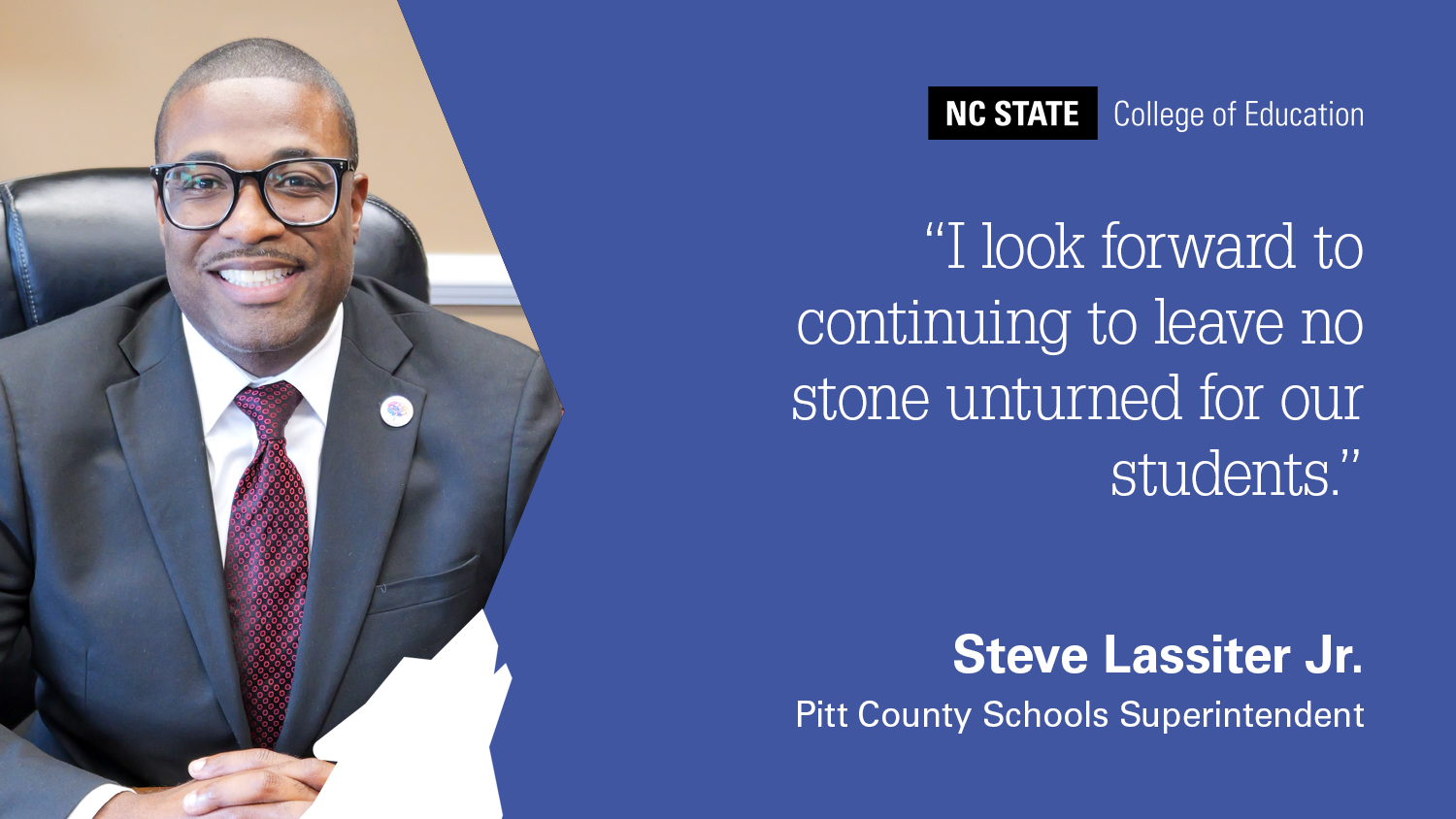Young Adult Colloquium Provides Opportunity for Educators to Share Magic of Black Characters in Classroom

The 2021 Young Adult Colloquium: Come YAC with the Pack was launched with the goal of sharing the magic of Black characters with educators, while also preparing those educators to take what they learned and apply it to the classroom.
“How do we help our teachers think about how we can bring not just trauma, but joy to the stories that are being included in the curriculum?” asked NC State College of Education Assistant Professor Michelle Falter, Ph.D., one of the event’s organizers. “For me, I was very interested in reframing the magic, the joy, of black characters, black stories and black authors that are so needed in our schools.”
Not only were educators able to hear Kwame Mbalia and Tracy Deonn’s keynote speeches, but a group of them returned in the afternoon for professional development sessions led by experts in educational equity, young adult literature and literacy instruction.
“The beginning event got them into the literature and got them excited about these authors and their perspectives,” said Kerri Brown Parker, an event organizer and director of the NC State College of Education’s Media and Education Technology Resource Center (METRC). “They learned something new and now they get to take that more in-depth and really think about how they’re going to apply what they thought about this morning to their actual classroom or library setting.”
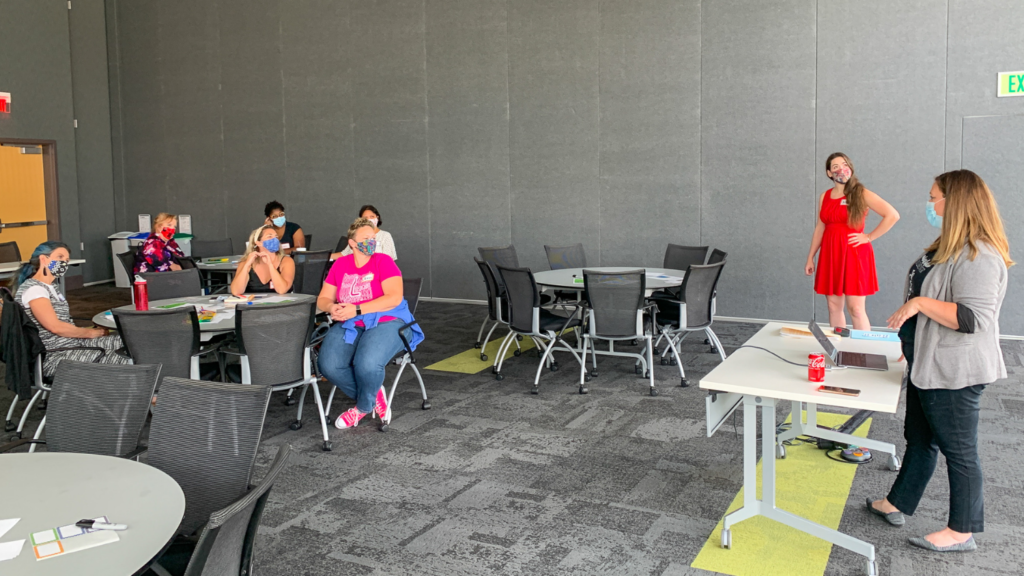
Jewel Davis, an education librarian and associate professor in the Instructional Materials Center of Appalachian State University’s Belk Library and Information Commons who was part of the panel with Kwame Mbalia and Tracy Deonn earlier in the day, returned for the afternoon sessions to talk with attendees about misrepresentation in speculative fiction, information she hopes will be valuable to their students.
“Being able to give students definitions for what they’re seeing can help empower them to then make their own stories that do represent them,” said Davis.
Many of the professional development sessions were led by College of Education doctoral students. Laura Jacobs, a doctoral student in the NC State College of Education’s Literacy and English Language Arts Education program, spoke about folk tales and fairy tales that feature diverse representation as well as what it means to have a diverse and equitable curriculum.
“It’s about helping teachers really look at what is in your curriculum currently,” said Jacobs. “Whose experiences do those books that we’re using affirm, who’s left out and what are those action steps we can take going forward to make sure that every child in that classroom feels valued and feels heard.”
Making sure students felt heard was also integral to the sessions led by Brittani Clark, a doctoral student in the NC State College of Education’s Ph.D. in Teacher Education and Learning Sciences Educational Equity program area of study. In her sessions, Clark, who also helped organize the Young Adult Colloquium, spoke with the educators who attended about confronting anti-Blackness and cultivating Black joy.
“What I really hope that they take away from my sessions is the genius and the potential of Black students,” said Clark. “How it’s important to hear their stories.”
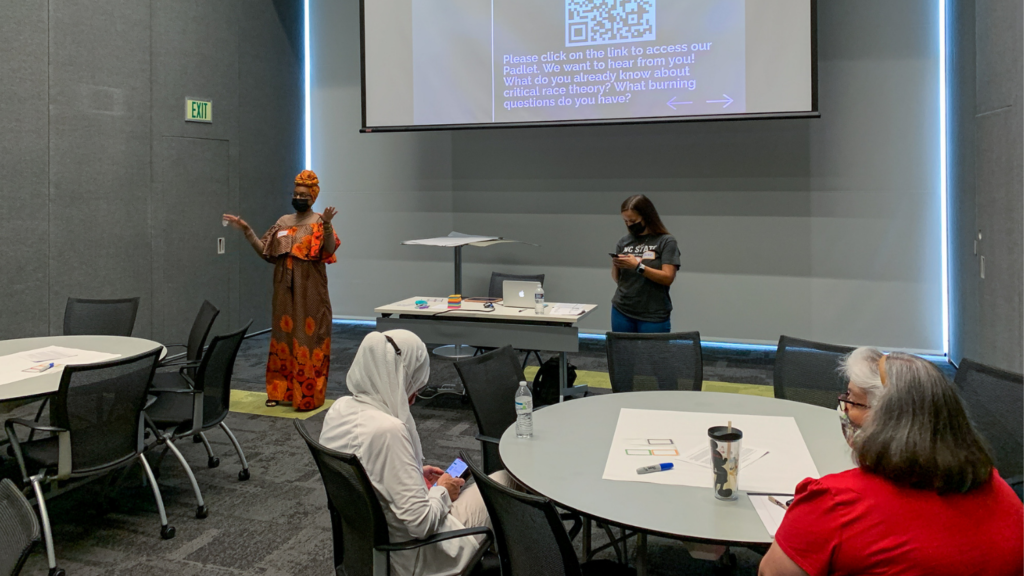
The goal, as Caitlin Donovan, a doctoral student in the NC State College of Education’s Ph.D. in Teacher Education and Learning Sciences Literacy and English Language Arts Education program area of study, put it, was to show educators that there are concrete steps they can take to improve their classrooms.
“We are priming our students to think imaginatively and excitedly about the future people who look like them can have,” Donovan said. “ If you are willing to attend to just a few pieces, you can do this work in your classroom.”
The sessions resonated with Jason Savo ’20, an ELA teacher at Oberlin Magnet Middle School who earned his bachelor’s degree in middle grades English Language Arts and social studies education from the NC State College of Education.
“I really enjoyed being able to think reflectively on our own practices and how we interact with all students,” Savo said.
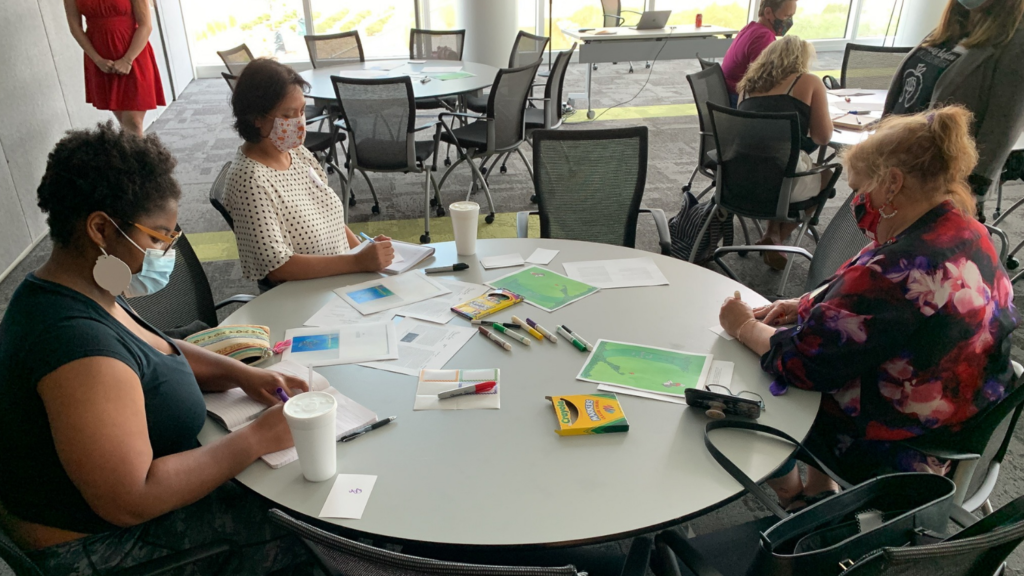
Falter hopes the Young Adult Colloquium sessions will inspire teachers to do just that — reflect on their own practices and work toward building an anti-racist classroom.
“I always saw this event as an opportunity to not only talk about great books but to talk about how we can use them in the classroom in ways that are culturally responsive, in ways that put equity and anti-racist practices first,” Falter said.
- Categories:
